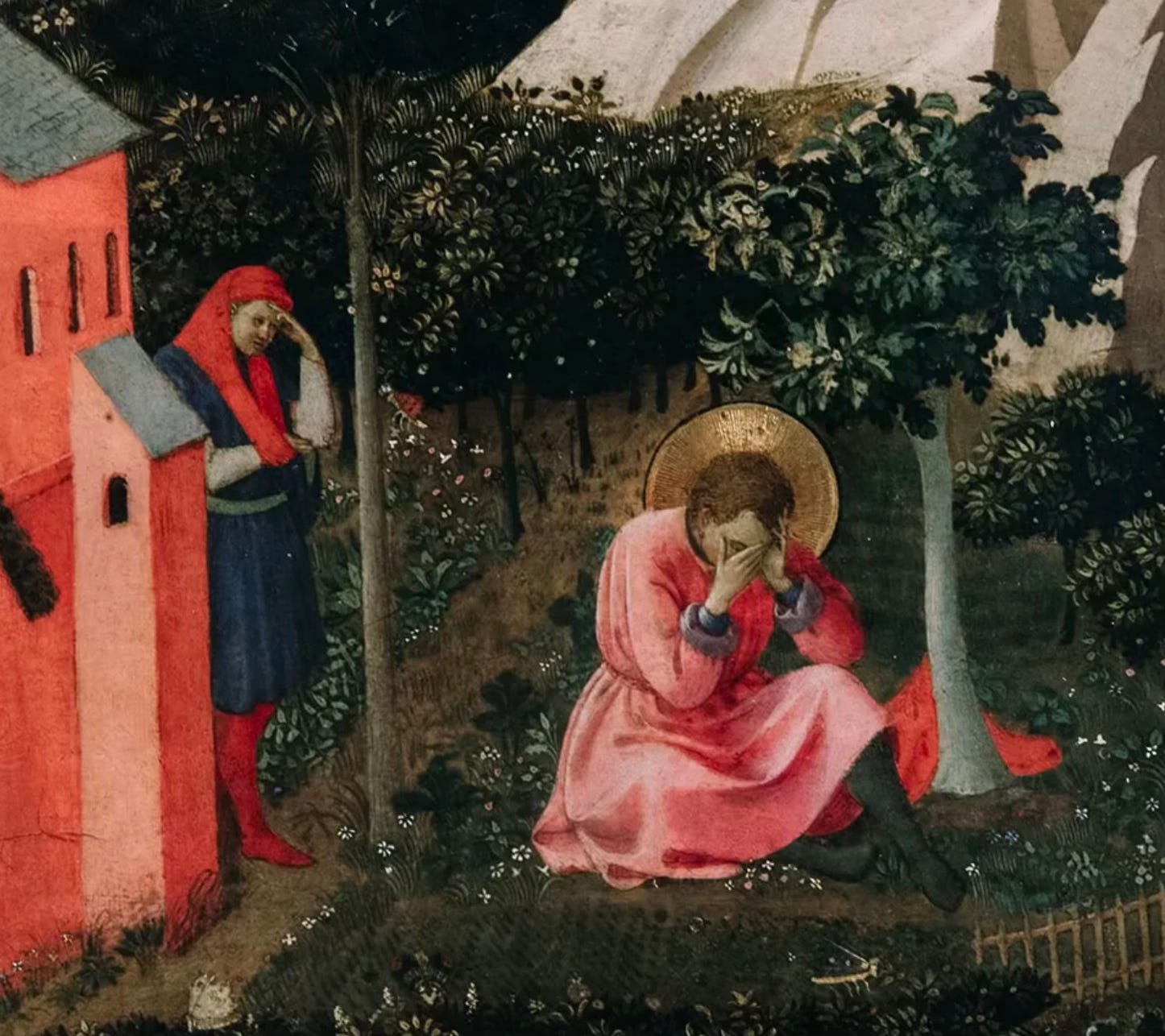Augustine vs. C.S. Lewis on Christian Grief
Last week, I wrote about Boethius’ assertion that Lady Fortune (and, by implication, those things under her domain) ought not to be loved because she breaks the hearts of her lovers. One could certainly read the words of Lady Philosophy and come to the conclusion that there is a moral and spiritual imperative not to give your heart to anything which is destined to pass away. In a memorable passage from his Confessions, Augustine expresses a similar point of view while reflecting on the death of a close friend:
“‘Grief darkened my heart’ (Lam. 5:17). Everything on which I set my gaze was death. My home town became a torture to me; my father’s house was a strange world of unhappiness; all that I had shared with him was without him transformed into a cruel torment. My eyes looked for him everywhere, and he was not there. I hated everything because they did not have him, nor could they now tell me ‘look, he is on the way’, as used to be the case when he was alive and absent from me. I had become to myself a vast problem, and I questioned my soul ‘Why are you sad, and why are you very distressed?’ But my soul did not know what reply to give…
I was in misery, and misery is the state of every soul overcome by friendship with mortal things and lacerated when they are lost…
The reason why that grief had penetrated me so easily and deeply was that I had poured out my soul on to the sand by loving a person sure to die as if he would never die.” (IV.iv, vi, viii)
There is some truth in this. As Christians, the things of this world – the transient things, the impermanent things, the things destined to change and pass away – must not be the objects of our highest love. Augustine’s idea of ordo amoris, “rightly ordered loves”, is right: Christ must come first, and all other loves must follow behind Him. However, there is a crucial nuance, a tension, that must be wrestled with: the fact that a thing will break your heart is not, in itself, an argument that it ought not to be loved. In The Four Loves, C.S. Lewis offers the following response to Augustine:
“In words which can still bring tears to the eyes, St. Augustine describes the desolation into which the death of his friend Nebridius plunged him (Confessions IV, 10). Then he draws a moral. This is what comes, he says, of giving one’s heart to anything but God. All human beings pass away. Do not let your happiness depend on something you may lose. If love is to be a blessing, not a misery, it must be for the only Beloved who will never pass away.
Of course this is excellent sense. Don’t put your goods in a leaky vessel. Don’t spend too much on a house you may be turned out of. And there is no man alive who responds more naturally than I do to such canny maxims. I am a safety-first creature. Of all arguments against love none makes so strong an appeal to my nature as ‘Careful! This might lead you to suffering.’
To my nature, my temperament, yes. Not to my conscience. When I respond to that appeal I seem to myself to be a thousand miles away from Christ. If I am sure of anything I am sure that His teaching was never meant to confirm my congenital preference for safe investments and limited liabilities…
I think that this passage in the Confessions is less a part of St. Augustine’s Christendom than a hangover from the high-minded Pagan philosophies in which he grew up. It is closer to Stoic ‘apathy’ or neo-Platonic mysticism than to charity. We follow One who wept over Jerusalem and at the grave of Lazarus, and, loving all, yet had one disciple whom, in a special sense, he ‘loved’…
There is no escape along the lines St. Augustine suggests. Nor along any other lines. There is no safe investment. To love at all is to be vulnerable. Love anything, and your heart will certainly be wrung and possibly be broken. If you want to make sure of keeping it intact, you must give your heart to no one, not even to an animal. Wrap it carefully round with hobbies and little luxuries; avoid all entanglements; lock it up safe in the casket or coffin of your selfishness. But in that casket – safe, dark, motionless – it will change. It will not be broken; it will become unbreakable, impenetrable, irredeemable. The alternative to tragedy, or at least to the risk of tragedy, is damnation. The only place outside Heaven where you can be perfectly safe from all the dangers and perturbations of love is Hell…
Christ did not teach and suffer that we might become, even in the natural loves, more careful of our own happiness. If a man is not uncalculating towards the earthly beloveds whom he has seen, he is none the more likely to be so towards God whom he has not. We shall draw nearer to God, not by trying to avoid the sufferings inherent in all loves, but by accepting them and offering them to Him; throwing away all defensive armour. If our hearts need to be broken, and if He chooses this as the way in which they should break, so be it.” (120-122)
The question is not whether or not our hearts will break. They will. The question is whether they will break well – which is to say, whether we will assent to the breaking or not. If we try to refuse it, our hearts will harden into the self-protective lovelessness that Lewis describes. And if we accept it, perhaps we will find that, in a strange paradox, it is in being broken that we are made whole.




